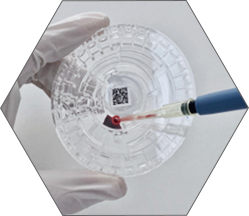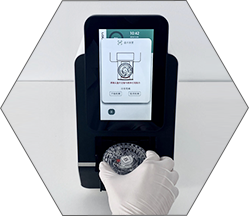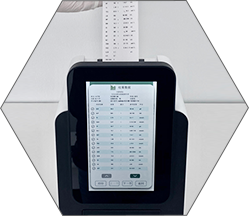Just like us humans, animals also need regular physical examinations. Animals can endure pain because they can’t speak. Regular physical examinations at pet hospitals and timely disease screening are helpful for disease prevention and monitoring. To save valuable time when animals are sick, injured or preparing for surgery, more and more clinics are performing laboratory tests in-house. Clinical testing makes pet owners more convenient and more willing to cooperate.
Customers can expect test results to be available in a short time, perhaps as little as a few minutes. They then leave the hospital with a treatment plan and medication instead of arranging to return to the hospital a few days later or to go elsewhere to get the medication again. In addition, clinical testing provides veterinarians with more comprehensive information about the animals they observe. Owners were also more likely to follow recommended treatment plans. The end result is more business for veterinarians.
As the core equipment of laboratory testing, veterinary biochemical analyzer can provide key data. Laboratory analysts help quickly assess emergencies, identify potential risks prior to surgery and anesthesia, and perform health tests to establish baseline data and measure change.
As you know, liver and kidney function must be checked in sick animals before anesthesia. This is because there may be unknown underlying conditions that could lead to complications or even death in the animal. Biochemical analyzers can help identify this risk.
Today's veterinary chemistry analyzers offer an extensive menu of tests. It can quickly screen for metabolic diseases such as kidney, liver and pancreas. In fact, almost any biochemistry test sent to an outside laboratory can be run on a veterinary chemistry analyzer. These include blood chemistry tests, electrolytes, urine protein-to-creatinine ratio, bile acids, T4 (thyroid), and cortisol.
Analysis steps:
Add 100μL Sample

2. Insert the Disc

3. Read the Results

Many biochemical analyzers use dry slide technology, which combines multiple filter layers for greater reliability. The collected animal serum or plasma is placed on a glass slide. The instrument reads and analyzes the chemical reaction as the chemical being tested penetrates the filter. Interfering errors from lipemia, jaundice or hemolysis (rupture of red blood cells in the test sample) are minimized to provide more accurate results.
Other analyzers offer dry bead systems that provide the required reagent stability. But this also includes biochemical techniques from external laboratories, since endpoint results are read manually.
Many biochemical analyzers can provide results in minutes. Some have even fewer steps. Some suppliers offer pre-installed clips so there is no need to unpack them.
Some automated biochemistry analyzers include on-board centrifuges, automatic calibration, and built-in quality control procedures.
Included centrifugation equipment includes centrifuge tubes, microvolume tubes/capillaries, blood collection tubes such as serum separator tubes, EDTA, Sheather's solution, stool sampling swab stool loops, microscope slides, microscope coverslips, tube racks, and differential counters.
LOCMEDT produces a variety of biochemical analyzers for animal hospitals, the following are our current products, welcome to buy.
Contact US
Recommended Products
Biochemical analyzer is a good helper for animal hospitalsBlood Analyzer ManufacturersClinical Laboratory AnalyzerHematology Analyzer BrandsLaboratories Veterinary AnalyzersPortable Clinical Chemistry Analyzer SupplierVeterinary Blood Rapid Test MachineVeterinary Hematology Analyzer PricePet Medical Diagnostic EquipmentClinical Chemistry AnalyzersVeterinary Hematology AnalyzerElectrolyte Analyzer for Sale - LOCMEDTVet Blood Analyzer ExporterNavigation
Tel.: +86 22 5860 1276
Mob.: +86 155 1086 2356
E-mail: shirleyhan@locmedt.com
WhatsApp: 8615510862356
Add.: Floor 4, Building B3, Huaming High-tech Industrial Zone, No.6 Huafeng Road, Dongli District, 300300, Tianjin, China
Contact